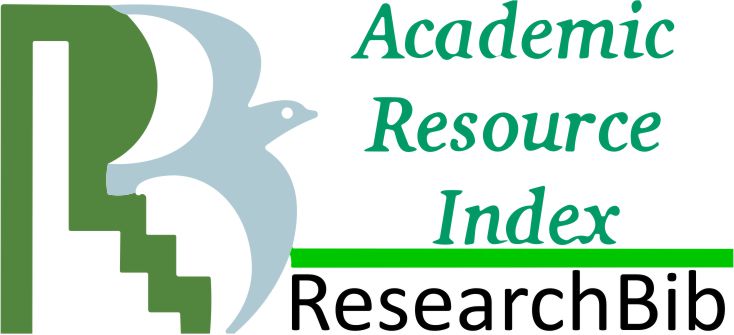Publication Ethics and Malpractice Statement
Jurnal Akuntansi dan Keuangan Indonesia (JAKI) is committed to upholding the principles of publication ethics by maintaining the quality of content through an independent double-blind review process. We prioritize the quality of articles over simply meeting our biannual publication deadlines in June and December.
To ensure high ethical standards for publishers, editors, authors, and reviewers, including the prevention of research and publication misconduct, JAKI adheres to the Principles of Transparency and Best Practice in Scholarly Publishing as outlined by the Committee on Publication Ethics (COPE). These guidelines can be accessed at COPE Principles of Transparency and Best Practice Below are the ethical standards for JAKI editors, authors, and reviewers.
These ethical guidelines are adopted from the publication ethics policy of Elsevier.
ETHICAL STANDARDS FOR EDITORS
- Editors are responsible for every article published in JAKI and should ensure that all published content adheres to the journal's standards and policies.
- Editors must evaluate manuscripts objectively for publication, assessing each based on its quality without regard to the authors' characteristics or affiliations. Editors should decline their assignment if there is a potential conflict of interest.
- Editors must guarantee the confidentiality of submitted manuscripts, maintaining the trust and integrity of the peer review process.
- Editors may communicate with other editors or reviewers in making the final decision on manuscript acceptance, taking into account the feedback received during the review process.
- Editors' decisions should be communicated to authors along with reviewers' comments unless the comments are offensive or defamatory, ensuring transparency in the review process.
- Editors should assist authors in following JAKI's author guidelines to ensure that submissions meet the journal's requirements.
- Editors must ensure that documents sent to reviewers do not contain information about the authors, and vice versa, to maintain the integrity of the peer review process.
- Editors should respect requests from authors to exclude certain individuals from reviewing their manuscripts if the requests are reasonable and practical, to maintain fairness and impartiality.
- Editors will be guided by COPE flowcharts in cases of suspected misconduct or authorship disputes, ensuring adherence to ethical standards and best practices in scholarly publishing.
ETHICAL STANDARDS FOR REVIEWERS
- Reviewers should maintain confidentiality regarding the materials they review and treat the information received during the review process as confidential, not to be misused.
- Reviewers should conduct an objective and fair evaluation of each article they review, regardless of factors such as nationality, ethnicity, or institutional affiliation.
- Reviewers should comment on ethical issues and potential research and publication misconduct.
- Reviewers should provide honest feedback and ensure that all comments and suggestions are based on a thorough analysis.
- Reviewers should complete the review process in a timely manner, adhering to the deadlines set by the journal, and promptly inform the editor if they are unable to complete the review within the specified timeframe.
- Reviewers should immediately inform the editor and decline the review assignment if there is a potential conflict of interest that could affect their assessment of an article.
- Reviewers should understand and follow the writing guidelines, evaluation criteria, and procedures provided by the journal for the review process.
ETHICAL STANDARDS FOR AUTHORS
- Authors should ensure that the article is original and has not been published previously. Authors should avoid plagiarism and self-plagiarism.
- Authors should appropriately credit the work and research of others cited in the article, ensuring all citations follow JAKI's specified format. Privately obtained information, such as through conversations or correspondence, must not be used or reported without explicit written consent from the source.
- Authors should disclose any potential conflicts of interest that could influence the research, such as financial support, personal affiliations, or other interests.
- Authors should ensure that research involving human or animal subjects has been approved by the relevant ethics committee and adheres to applicable ethical standards.
- Authors should be prepared to provide data and research details to the editor upon request. This includes raw data that supports the research findings.
- Authors should ensure that all listed authors have significantly contributed to the conception, design, execution, interpretation, or writing of the article. The corresponding author must verify that all co-authors have reviewed and approved the final version of the paper and consented to its submission for publication.
- Authors should promptly inform the journal editor and cooperate to correct or retract the article if significant errors are discovered after publication.
- Authors should be open to feedback from reviewers and editors and be willing to revise the article according to the suggestions and comments provided.
- Authors should follow all writing and submission guidelines set by JAKI.
- Authors should not submit the same article that is under review at JAKI to other publication outlets simultaneously.
- Authors should avoid 'salami' publication practices, which are strictly prohibited by JAKI.
- Authors utilizing AI and AI-assisted technologies are only permitted to enhance readability and language. Authors must still carefully review and edit their manuscripts as JAKI will conduct an AI similarity check (the score should be less than 20%).












